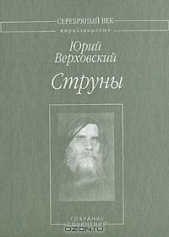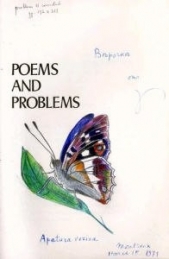438–439. FROM «MOZART AND SALIERI» {*}
SCENE I. A ROOM
Salieri
They say there is no justice on the earth.
I know now there is none in Heaven. Plain
as seven simple notes! I have loved the art
from birth; when I was but a little child
in our old church and the organ boomed sublimely,
I listened and was lost — shedding delicious
involuntary tears. I turned away
from foolish pastimes early; found repellent
all studies foreign to my music — ay,
from all I turned with obstinate disdain,
determined thence to dedicate myself
to music, music only. The start is hard,
the first steps make dull going. I surmounted
the initial obstacles; I grounded firmly
that craft that makes the pedestal for art;
a craftsman I became: I trained my fingers
to dry obedient proficiency,
brought sureness to my ear. Stunning the sounds,
I cut up music like a corpse; I tested
the laws of harmony by mathematics.
Then only, rich in learning, dared I yield
to blandishments of sweet creative fancy.
I dared compose — but silently, in secret,
nor could I venture yet to dream of glory.
How often, in my solitary cell,
having toiled for days, having sat unbroken hours,
forgetting food and sleep, and having tasted
the rapture and the tears of inspiration,
I'd burn my work and coldly watch the flame
as my own melodies and meditations
flared up and smoked a little and were gone.
Nay, even more: when the great Gluck appeared,
when he unveiled to us new marvels, deep
enchanting marvels — did I not forsake
all I had known, and loved so well and trusted?
Did I not follow him with eager stride,
obedient as one who'd lost his way
and met a passerby who knew the turning?
By dint of stubborn steadfast perseverance
upon the endless mountainside of art
I reached at last a lofty level. Fame
smiled on me; and I found in others' hearts
responses to the sounds I had assembled.
Came happy days: in quiet I enjoyed
Work and success and fame — enjoying also
the works and the successes of my friends,
my comrades in that art divine we served.
Oh, never did I envy know. Nay, never!
Not even when Piccini found a way
to captivate the ears of savage Paris —
not even when I heard for the first time
the plangent opening strains of «Iphigenia».
Is there a man alive who'll say Salieri
has ever stooped to envy — played the snake
that, trampled underfoot, still writhes and bites
the gravel and the dust in helpless spite?
Not one!.. Yet now — I needs must say it — now
I am an envious man. I envy — deeply,
to agony, I envy. — Tell me, Heaven!
where now is justice when the holiest gift,
when genius and its immortality,
come not as a reward for fervent love,
for abnegation, prayer and dogged labor —
but lights its radiance in the head of folly,
of idle wantonness? …Oh, Mozart, Mozart!
Mozart enters.
Mozart
Aha! you saw me! I was just preparing
to take you by surprise — a little joke.
Salieri
You here? — When did you come?
Mozart
This very minute. I
was on my way to you to show you something
when, passing near a tavern, all at once
I heard a fiddle.... Oh, my dear Salieri!
You never in your life heard anything
so funny.... Than blind fiddler in a pothouse
playing Voi сhe sapete. Marvelous!
I simply had to bring him here to have you
enjoy his art. — Step in!
Enters a blind old man with a violin.
The old man plays the aria from «Don Giovanni»;
Mozart roars with laughter.
Salieri
And you can laugh?
Mozart
Oh, come, can't you?
Salieri
I cannot.
I am not amused by miserable daubers
who make a mess of Raphael's Madonna;
I am not amused by despicable zanies
whose parodies dishonor Alighieri.
Be off, old man.
Mozart
Wait; here's some money for you —
you'll drink my health.
The old man goes out.
It seems to me, Salieri,
You're out of sorts to-day. I'll come to see you
some other time.
Salieri
What have you brought?
Mozart
Oh, nothing —
a trifle. My insomnia last night
was troubling me, and one or two ideas
entered my head. Today I dashed them down.
I wanted your opinion; but just now
you're in no mood for me.
Salieri
Ah, Mozart! Mozart!
When is my mood averse to you? Sit down.
I'm listening.
Mozart (at the piano)
I want you to imagine…
Whom shall we say?… well, let's suppose myself
a little younger — and in love — not deeply,
but just a little — sitting with a damsel
or with a bosom friend — yourself, let's say —
I am merry.... All at once: a ghostly vision,
a sudden gloom, or something of the sort....
Well, this is how it goes.
He plays.
Salieri
You were bringing this,
and you could stop to linger at a tavern
and listen to a blind man with a fiddle!
Ah, Mozart, you are unworthy of yourself.
Mozart
You like it, do you?
Salieri
What profoundity!
What daring and what grace! Why, you're a god,
and do not know it; but I know, I know.
Mozart
What, really? Maybe so… If so His Godhead
is getting to be hungry.
Salieri
Listen, Mozart:
Let's dine together at the Golden Lion.
Mozart
A capital idea. But let me first
go home a moment: I must tell my wife
she's not to wait for me.
He goes
Salieri
Don't fail me now.
— Nay, now can I no longer fight with fate:
my destiny's to stop him — else we perish,
we all, the priests, the ministers of music,
not I alone with my dull-sounding fame....
What worth are we if Mozart lives and reaches
new summits still? Will this exalt our art?
Nay: art will sink so soon as he departs:
he will leave us no successor — will have served
no useful purpose. Like a seraph swooping,
he brought us certain songs from Paradise,
only to stab us, children of the dust,
with helpless wingless longing, and fly off!
— So fly away! — the sooner now, the better.
Here's poison: the last gift of my Isora.
For eighteen years I've kept it, let it season —
and often life would seem to me a wound
too bitter to be borne — I have often sat
with some unwary enemy at table,
yet never did that inward whisper win me;
though I'm no coward and feel insult deeply,
and care not much for life. Still did I tarry,
tormented by the thirst for death, yet brooding:
why should I die? Perchance the future yet
holds unexpected benefits; perchance
I may be visited by Orphic rapture,
my night of inspiration and creation;
perchance another Haydn may achieve
some great new thing — and I shall live in him…
While I was feasting with some hated guest,
perchance, I'd muse, I'll find an enemy
more hateful still; perchance a sharper insult
may come to blast me from a prouder eminence
— then you will not be lost, Isora's gift!
And I was right! At last I have encountered
my perfect enemy: another Haydn
has made me taste divine delight!. The hour
draws nigh at last. Most sacred gift of love:
You'll pass to-night into the cup of friendship.
<12 декабря 1940>

























